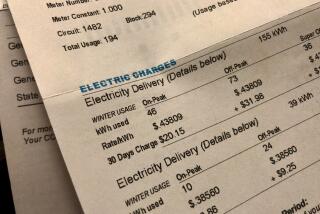PUC Is About to Write New Rule Book for Pay Phones
A new era in the pay-phone business in California is expected to dawn later this year when the Public Utilities Commission completes work on a two-year study of the former monopoly that it opened to competition in November, 1985.
The centerpiece is a “settlement agreement” that reconciles the differences of all parties: consumer groups, the PUC’s consumer-support staff, local phone companies, long-distance carriers and owners of private pay phones. If it works as intended, the agreement would have these benefits for each group:
* Consumers: There will be a uniform 20-cent rate for local coin calls from any pay phone, guaranteed for five years. (While pay phones operated by local phone companies charge 20 cents for these calls, private owners may charge 25 cents.) There will also be minimum equipment standards and uniform information posted at the pay phones, including the name and toll-free number of the telephone’s owner. There also will be no charge for dialing toll-free numbers to reach a preferred long-distance carrier, whether that carrier had a prescribed five-digit code (10-XXX) or a number starting with a prefix of 950 or 800. A phone’s owner could no longer block access to carriers other than the one subscribed to.
* Local Phone Companies: The PUC would authorize and set out procedures for these companies to enforce prices and “get rid of the bad actors” by disconnecting those guilty of persistent overcharging.
* Pay Phone Owners: The new owners agreed to trim their basic coin rate to 20 cents but in exchange will receive a 30-cent payment from phone companies and long-distance carriers for all non-coin calls the private pay phones transmit to their networks. This provision can spell the difference between profitability and loss for the pay phone’s owner. Owners also will eventually be able to buy additional network services from local carriers that are not now available, offering such advantages as correctly identifying when a call is answered and billing should begin.
* Long-Distance Carriers: So-called interexchange carriers are assured that their customers will always be able to reach them from any pay phone in California. Owners will no longer be able to force customers to use only the carrier the owners selected for their phones.
* Phone Makers: Manufacturers of telephones equipped with automated operator and billing services that meet certain standards set by the PUC will be allowed to install their equipment and compete with the local phone companies’ operators for dial-O calls.
More to Read
Inside the business of entertainment
The Wide Shot brings you news, analysis and insights on everything from streaming wars to production — and what it all means for the future.
You may occasionally receive promotional content from the Los Angeles Times.









